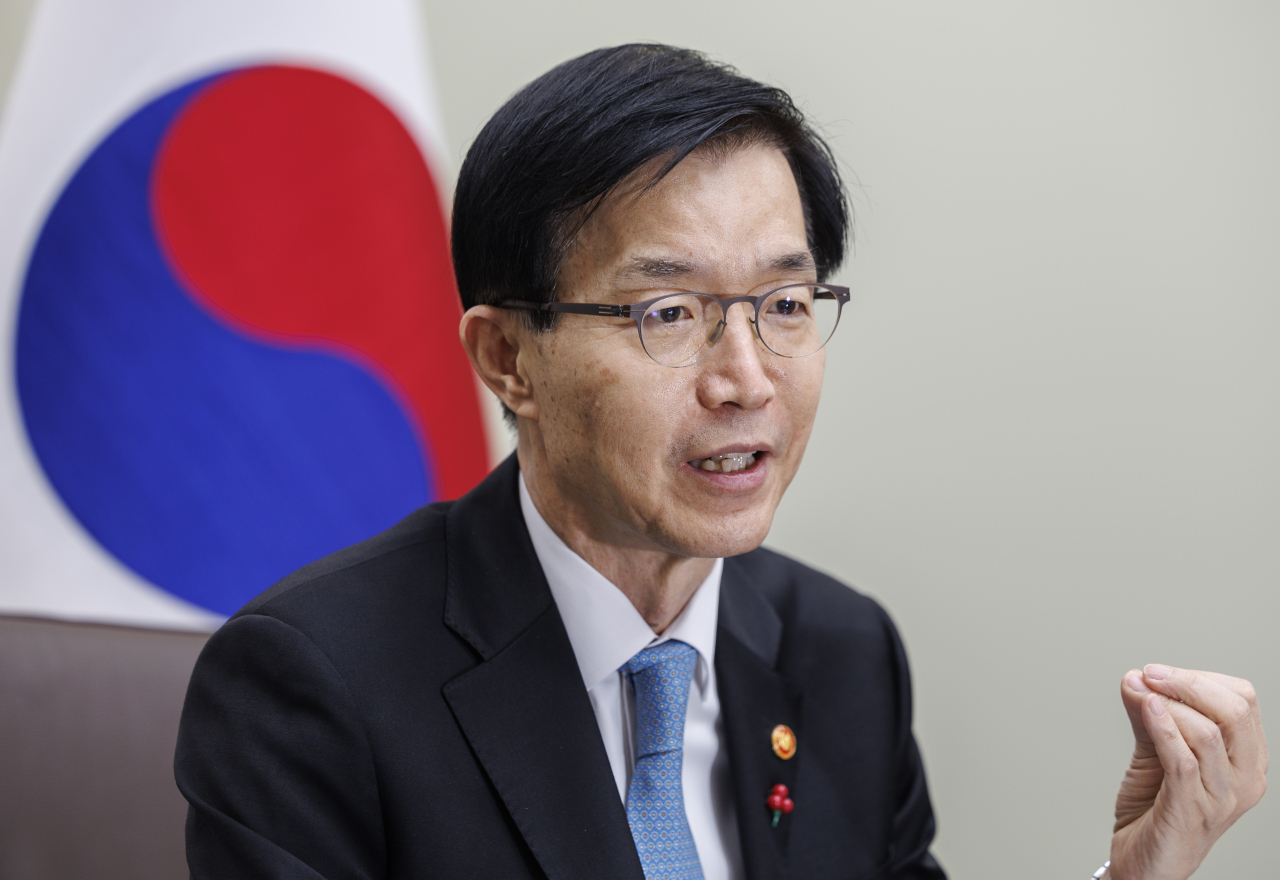
The South Korean government will push to pay for part of urea imports when companies need to buy the chemical from nations other than China as part of efforts to prevent a supply shortage and ensure a longer-term stable supply, the industry minister has said.
Industry Minister Bang Moon-kyu made the remarks during a meeting with reporters Wednesday, as China's recent suspension of customs procedures for urea shipments to South Korea has raised concerns about a supply crisis.
"We have enough supplies of urea, and we can buy them from third nations. The recent halt is unlikely to become a major challenge for us," Bang said.
South Korea has an inventory of urea that can last 3.7 months, he said, adding that shipments from nations other than China are 10 percent more expensive.
South Korea is heavily dependent on China for urea supplies due mainly to the price factor.
According to government data, South Korea imported more than 90 percent of urea for industrial purposes from China this year, rising from 71.8 percent the previous year.
The proportion of Chinese urea for fertilizers also rose from 18.3 percent in 2022 to 22.5 percent this year.
"Companies have turned to China for its cheap prices and have been reluctant to raise their inventory given huge storage fees and other costs. So it is needed for the government to set up a system that supports corporate imports of a certain, minimum amount of urea in emergency situations to prevent any recurrence of the crisis from two years ago," Bang said.
In 2021, South Korea suffered major disruptions to its urea supply as China halted its exports amid a trade dispute with Australia.
The government on Thursday came up with a set of measures in response to China's recent export restrictions, such as doubling the state inventory of urea for diesel vehicles and releasing the current government reserves.
It also vowed to consider giving subsidies to companies that seek to diversify supply channels of urea.
Some 26 billion won ($19.8 million) from the budget per year is expected to be required for the subsidies for the urea supply for industrial purposes, according to the finance ministry.
South Korea brings in urea from Qatar, Vietnam, Indonesia and Saudi Arabia, in addition to China, and it can secure imports from more than 12 nations.
Speaking of the economic situation, Bang said exports are expected to rise over 5 percent next year on the back of a recovery in the global semiconductor demand.
"We expect exports to grow around 5-6 percent next year, and some economic institutions forecast up to a 9 percent increase," Bang said.
"Chip sales will likely show the fastest recovery among major items to log around a 18 percent on-year increase. Such other leading sectors as vehicles and shipbuilding will also log double-digit growth," he added.
South Korea had suffered a yearlong decline of exports through September amid monetary tightening by major economies and a global economic slowdown. But shipments rebounded in October and logged a 7.8 percent expansion last month.
The government plans to draw up a set of measures to nurture the non-memory chip sector next year.
"In the system chip sector, South Korea still has a long way to go. The government will announce measures in February to boost the overall ecosystem from fabless, foundry, design house to packaging," Bang said.
Asked about the wide speculation that he would run for the general elections on April 15, 2024, Bang said he has "received such requests a lot," though he wants to serve in his current position longer.
Bang took office in September, and civil servants are required to quit their public jobs no later than 90 days ahead of the polling date if they want to run. (Yonhap)



















![[Today’s K-pop] Treasure to publish magazine for debut anniversary](http://res.heraldm.com/phpwas/restmb_idxmake.php?idx=642&simg=/content/image/2024/07/26/20240726050551_0.jpg&u=)